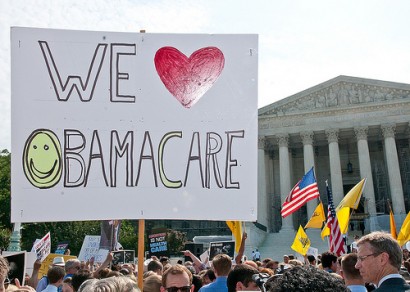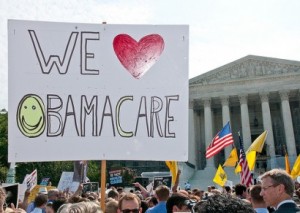The Supreme Court Rulings And Their Effects On Immigrant Communities

 By Erwin de Leon, Feet in 2 worlds
By Erwin de Leon, Feet in 2 worlds
Our Supreme Court justices have been rather productive this week and their rulings will impact the lives of all of us who live in this country, including those who have chosen the United States as their adopted home, with or without proper documentation.
Yesterday the justices upheld the constitutionality of the Affordable Care Act in a 5-4 ruling.
In a statement applauding the move, the Southeast Asian Resource Action Center (SEARAC) released a statement saying the ruling will clear the way for 465,000 Southeast Asian Americans and millions of others currently living without health insurance gain access to coverage.
“Today’s decision is an opportunity for policymakers, state agencies, private insurers, community stakeholders, and consumers to put aside differences and begin the complex and important work of implementing the Affordable Care Act,” stated Doua Thor, SEARAC’s executive director. “There are still far too many families who cannot afford care, far too many elders who must choose between life-saving prescription medication and paying rent, and far too many individuals who suffer from a health system filled with consumer pitfalls and lacking resources for culturally and linguistically appropriate care. Our communities cannot afford to wait.”
Yet the justices ruled that states can opt out of the Medicaid expansion stipulated in the law without risking their funding for their existing Medicaid programs. The expansion offers coverage to anyone with an income at or below 138 percent of the federal poverty level, expanding eligibility to mainly children, pregnant women, elderly and disabled adults.
Many immigrants, particularly those who are naturalized or have permanent legal residency (green cards), could potentially benefit from the expansion of Medicaid. It remains to be seen what insurance will be offered to those who live in states that opt out of the expansion. (Read Victor Landa’s breakdown of how the ruling will impact the Latino community).
One must not forget that the ruling has absolutely no bearing on the welfare of unauthorized immigrants, who are ineligible to participate in federal programs. Even if they are willing to pay out of pocket they will not have access to the health exchanges mandated by the law.
Earlier in the week, the justices handed down a split decision on Arizona’s controversial immigration law, SB 1070. They blocked the implementation of three parts of the law, which opens the door for courts to strike down similar measures in states like Alabama, Georgia, South Carolina, Indiana and Utah that have endeavored to make it a state crime for undocumented immigrants to live and work in the U.S. The Court did sustain the “show me your papers” provision of SB 1070, which requires state law enforcement officials to determine the immigration status of anyone they stop or arrest if there is reason to suspect that the individual might be an undocumented immigrant.
Immigrant communities, their advocates and fair-minded Americans have decried the provision’s survival, rightfully fearing that it could lead to racial profiling. The justices did suggest that the law would be open to new challenges based on civil rights violations. The ACLU immediately took up the gauntlet and vowed to fight the “papers please” provision in the courts with its $9 million war chest.
It will take time to feel the tangible effects of the Supreme Court rulings. But it shouldn’t take much time for anyone to realize how these nine individuals make such a tremendous impact in our lives. It is likely that at least one new justice will be nominated to join the Court in the next four years. Who will be the man who choosing the next Supreme Court justice? Will it be President Obama, who will try to balance the scale of the Court, which currently tilts to the right? Or will it be President Romney, who will tilt it further to the right?
Immigrant communities can have a say on who that president will be. They need to organize, mobilize and get those who can vote to the polls.
Erwin de Leon is a Policy Researcher andwriter based in Washington, DC. He writes on immigration, LGBT, and nonprofit issues. You can follow him on Twitter at @ErwindeLeon or read his blog.
Fi2W is supported by the New York Community Trust and the John S. and James L. Knight Foundation with additional support from the Ralph E. Odgen Foundation and the Sirus Fund.
[Photo by SEIU International]
